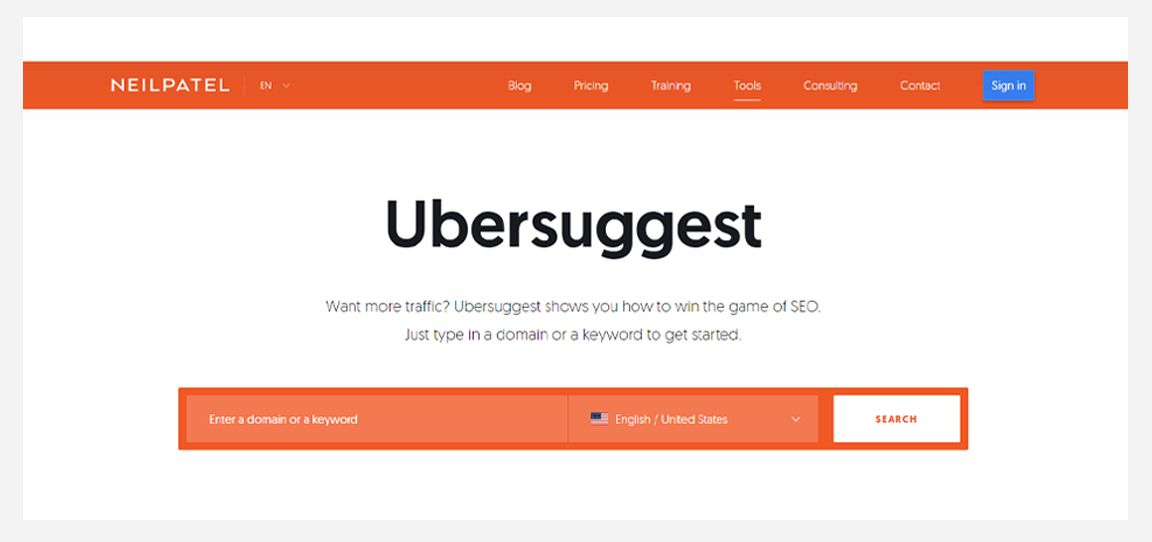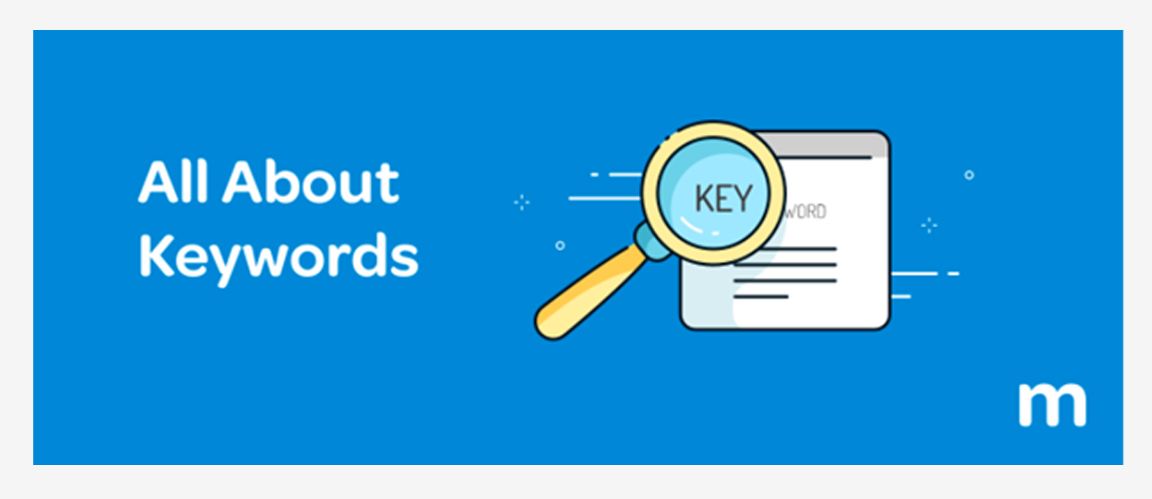What Are SEO Keywords?
SEO keywords are the words and phrases used in a website's content, metadata, and other elements that are used to optimize search engine rankings. Essentially, SEO keywords are the terms that people enter into search engines to find what they're looking for.
In this article, you will learn:
- What Are SEO Keywords?
- Why Are SEO Keywords Important?
- How to Conduct Keyword Research
- The Best Keyword Research Tools
- Using Google Search
- Autocomplete
- Related Searches
- "People Also Ask"
- Google Trends
- Competitor Analysis
- Top Keyword Tools
- Google Keyword Planner
- SEMRush
- Ahrefs
- Moz
- KWFinder by Mangools
- Ubersuggest
- AnswerThePublic
- Ink For All
- Types of SEO Keywords
- Short-Tail Keywords
- Long-Tail Keywords
- Geo-Targeted Keywords
- LSI Keywords
- Branded Keywords
- Product Keywords
- How to Use SEO Keywords
- Content
- Title Tags
- Meta Descriptions
- Header Tags
- Image Alt Text
- URL Structure
- Internal Linking
- Backlinks
- Keyword Tracking and Analysis
- Google Analytics
- Google Search Console
- GA4
- Keyword Rank Tracking Tools
- Traffic Analysis
- Keyword Refinement
- Conclusion

Why Are SEO Keywords Important?
Keywords are the foundation of all SEO strategies. When a website uses the right keywords, it is more likely to appear in search engine results pages (SERPs) for relevant queries. The more frequently a website appears in search results, the more likely it is to receive organic traffic.
Additionally, using the right keywords can help a website attract the right kind of traffic. If a website uses broad or generic keywords, it may attract visitors who are not interested in what the site has to offer.
On the other hand, if a website uses specific, targeted keywords, it is more likely to attract visitors who are interested in its content or products.
SEO keywords also play a crucial role in on-page optimization. By including relevant keywords in your website's content and metadata, you can help search engines understand the context and relevance of your website's pages.
This, in turn, can improve your website's visibility in search engine results pages and help you rank higher for your target keywords.
Moreover, SEO keywords can help you stay competitive in your industry.
By identifying relevant keywords and analyzing their search volumes and competition, you can gain insights into your competitors' strategies and find opportunities to optimize your website for keywords that they may have overlooked.

How to Conduct Keyword Research
Conducting keyword research is an essential part of any SEO strategy. Conducting keyword research is a crucial part of any successful SEO strategy. Keyword research involves identifying the search terms and phrases that people are using to find the products or services that you offer.
By identifying these keywords and optimizing your website for them, you can improve your website's visibility in search engine results pages and attract more targeted traffic to your site.
When conducting keyword research, there are several steps to follow. The first step is brainstorming a list of keywords and phrases that are relevant to your website's content or products. Think about the terms that people might use to search for what you offer.
You can also use tools like Google's autocomplete feature to generate ideas for related keywords and phrases.
Once you have a list of potential keywords, it's important to evaluate the competition and search volumes for each keyword.
Keyword research tools like Google Keyword Planner, Ahrefs, SEMrush, and Moz Keyword Explorer can provide data on search volumes, competition, and potential traffic for individual keywords and keyword phrases.
By evaluating the competition and search volumes for each keyword, you can identify the keywords that have the highest potential for generating traffic and optimize your website for them.
Here are the steps to follow when conducting keyword research:
- Brainstorming: Start by brainstorming a list of keywords and phrases that are relevant to your website's content or products. Ask yourself what terms people might use to search for what you offer.
- Competitor Analysis: Analyze your competitor's websites to see what keywords they are using. This can give you ideas for keywords that you may have overlooked.
You can use tools like Ahrefs to find keyword gaps your competitors are using.
- Keyword Tools: Use keyword research tools to find additional keywords and phrases that you may not have thought of. Some popular keyword research tools include Google Keyword Planner, Ahrefs, SEMrush, and Moz Keyword Explorer.
- Keyword Difficulty: Evaluate the difficulty of ranking for each keyword. Some keywords may be too competitive to rank for, while others may be too obscure to generate traffic.
- Keyword Selection: Once you have identified a list of potential keywords, select the ones that are most relevant to your website and have the highest potential for generating traffic.

The Best Keyword Research Tools
Keyword research is a critical part of any SEO strategy, and there are several keyword tools available to help you identify relevant keywords and analyze their search volumes, competition, and other factors.
Using Google Search
Google search can be a valuable tool for conducting keyword research. It is free and provides a lot of data on how Google sees a particular keyword.
Here are some ways to use Google search for keyword research:
- Autocomplete: When you start typing a query into the Google search bar, Google will provide suggestions for related search terms in real time. These suggestions are based on the most common search terms related to your query and can provide ideas for keywords and phrases to target.
- Related Searches: At the bottom of the search results page, Google displays a list of related searches. These searches are related to your query and can provide additional ideas for keywords and phrases to target.
- "People Also Ask" Section: Google's "People Also Ask" section displays a list of related questions that people commonly ask about your search term. These questions can provide ideas for keywords and phrases to target and can also help you understand what people are searching for in relation to your products or services.
- Google Trends: Google Trends is a tool that allows you to track the popularity of a search term over time. It can help you identify trends in search behavior and provide insights into the popularity of specific keywords and phrases.
- Competitor Analysis: Finally, you can use Google Search to analyze your competitors' websites and identify the keywords and phrases that they are targeting.
By analyzing your competitors' strategies, you can find opportunities to optimize your website for keywords that they may have overlooked and gain a competitive edge in your industry.
Overall, Google search can be a valuable tool for conducting keyword research.
By using the autocomplete feature, related searches, "People Also Ask" section, Google Trends, and competitor analysis, you can identify relevant keywords and phrases to target and optimize your website for improved search engine visibility and targeted traffic.

Top Keyword Tools
Keyword tools are valuable resources for anyone conducting SEO or digital marketing.
By identifying relevant keywords, analyzing competition, evaluating search volumes, refining your strategy, and staying competitive, you can improve your website's visibility in search engine results pages and attract more targeted traffic to your site.
Here are some of the best keyword tools available:
- Google Keyword Planner (Free)
- Pros: Directly integrated with Google Ads, provides accurate keyword search volume, competition, and cost per click data from Google itself. It's also free to use.
- Cons: It's more focused on paid search than organic SEO. The data may not be as comprehensive as some other tools, and it doesn't show keyword difficulty or provide as many keyword suggestions as other tools.
- SEMRush (Paid)
- Pros: Provides a comprehensive suite of SEO tools, including keyword research, backlink analysis, and competitive analysis. Gives a lot of details about each keyword, including keyword difficulty, search volume, and the number of results.
- Cons: It's quite expensive, especially for small businesses or freelancers. Some users find the interface a bit complicated.
- Ahrefs (Paid)
- Pros: Offers a broad range of SEO tools, including a powerful keyword research tool. It's known for its extensive backlink database and offers a comprehensive overview of your site's SEO health.
- Cons: Like SEMRush, Ahrefs is quite expensive. It also has a steep learning curve for new users.
- Moz Keyword Explorer (Paid)
- Pros: Easy to use, provides a good amount of keyword suggestions, and includes metrics like keyword difficulty, organic CTR, and priority.
- Cons: More expensive than some other options. The keyword suggestions aren't as comprehensive as some other tools, and it doesn't provide as much data on SERP analysis.
- KWFinder by Mangools (Paid)
- Pros: User-friendly interface, provides a lot of data on each keyword, including search volume, keyword difficulty, and SERP overview.
- Cons: The number of keyword searches is limited on lower-tier plans. Does not have as many features as all-in-one platforms like SEMRush and Ahrefs.
- Ubersuggest (Free and Paid)
- Pros: Provides a good amount of keyword ideas and includes SEO metrics like search volume, SEO difficulty, and paid difficulty. It also offers content ideas based on the keywords.
- Cons: The free version has limited capabilities. Also, its data accuracy has been questioned by some users.
- AnswerThePublic (Free and Paid)
- Pros: This is a different kind of keyword tool that generates questions people are asking about a particular topic. It's great for finding long-tail keywords and content ideas.
- Cons: It doesn't provide any SEO metrics like search volume or keyword difficulty. The free version is quite limited and the data can be overwhelming without proper sorting options.
-
- Ink For All (Free Trial and Paid)
- Pros: This tool uses AI to help choose the best keywords for user intent. It also has a clustering tool that helps with SEO strategy.
- Cons: Some features are limited in the free version and some users find the interface a bit cluttered.
Remember that the best tool for you depends on your specific needs, your budget, and your level of SEO expertise. Always try out a tool (most paid tools offer a free trial) before deciding to invest in it.

Types of SEO Keywords
Understanding the different types of keywords and how they are used can help you create an effective SEO strategy that targets the right audience with the right message.
By targeting the right keywords and using them effectively in your website's content and metadata, you can improve your website's visibility in search engine results pages and attract more targeted traffic to your site.
There are several types of SEO keywords that you should be aware of when conducting keyword research. These include:
- Short-Tail Keywords: Short-tail keywords are one or two-word phrases that are broad and general. These keywords have high search volumes but are also highly competitive. Examples of short-tail keywords include "shoes" or "SEO."
- Long-Tail Keywords: Long-tail keywords are longer phrases that are more specific and targeted. These keywords have lower search volumes but are less competitive. Examples of long-tail keywords include "women's running shoes" or "best SEO practices for small businesses."
- Geo-Targeted Keywords: Geo-targeted keywords are location-specific keywords that target a particular city, state, or region. These keywords are useful for businesses that have a physical location or provide services in a specific area.
Examples of geo-targeted keywords include "Chicago pizza delivery" or "Houston dentist."
- LSI Keywords: LSI (Latent Semantic Indexing) keywords are related terms and phrases that are semantically similar to your target keyword. Using LSI keywords can help search engines understand the context of your content and improve its relevance.
Examples of LSI keywords for the keyword "SEO" include "search engine optimization," "Google rankings," and "digital marketing."
- Branded Keywords: Branded keywords are search terms that include your brand name or variations of your brand name. They are used by people who are already familiar with your brand and are searching specifically for your products or services.
Branded keywords tend to have low competition and high conversion rates.
- Product Keywords: Product keywords are search terms that include specific product names or models. They are used by people who are searching for a specific product or are researching a specific product before making a purchase.
Product keywords tend to have high conversion rates because they attract visitors who are further down the sales funnel.

How to Use SEO Keywords
Once you have identified your target keywords, it's essential to use them effectively in your website's content, metadata, and other elements. Here are some tips for using SEO keywords:
- Content: Use your target keywords in your website's content, but avoid keyword stuffing. Write high-quality, relevant content that naturally incorporates your keywords without forcing them into the text. Aim for a keyword density of 1-2% in your content.
- Title Tags: Title tags are one of the most important on-page SEO factors. Include your target keyword in the title tag of each page on your website. Keep the title tag under 60 characters to ensure that it is displayed in full in search results.
- Meta Descriptions: Meta descriptions provide a summary of your page's content in search engine results pages. Include your target keyword in the meta description, but also make sure that it provides an accurate and compelling description of your page.
- Header Tags: Header tags (H1, H2, H3) help to structure your content and make it easier for search engines to understand the context of your page. Include your target keyword in at least one header tag on each page.
- Image Alt Text: Alt text provides a description of images on your website for users who are visually impaired or have slow internet connections. Include your target keyword in the alt text of images on your website.
- URL Structure: Use search-friendly URLs that include your target keyword. For example, if your target keyword is "best pizza in Chicago," use a URL like "https://example.com/best-pizza-chicago" rather than "https://example.com/p?=123."
- Internal Linking: Use internal linking to help search engines understand the structure of your website and the relationships between pages. Link to other pages on your website using anchor text that includes your target keyword.
- Backlinks: Backlinks (links from other websites to your website) are a crucial ranking factor for search engines. Build high-quality backlinks by creating valuable content that other websites will want to link to.
Keyword Tracking and Analysis
Once you have optimized your website for your target keywords, it's essential to track your rankings and analyze the results of your efforts. Here are some tools and techniques for keyword tracking and analysis:
- Google Analytics: Google Analytics provides valuable insights into your website's traffic and user behavior. Use it to track your organic search traffic and monitor the performance of your target keywords.
- Google Search Console: Google Search Console provides data on your website's performance in Google search results. Use it to monitor your website's impressions, clicks, and rankings for specific keywords.
- GA4: GA4 is a powerful tool for tracking keywords and understanding how they are driving traffic and engagement on your website. By creating a custom dimension for "Keyword," capturing keywords in your website's URLs, and analyzing keyword performance reports in GA4, you can optimize your website's SEO strategy and attract more targeted traffic to your site.
- Keyword Rank Tracking Tools: Use keyword rank tracking tools like Ahrefs or SEMrush to track your rankings for specific keywords over time. These tools can also provide insights into your competitors' rankings and strategies.
- Traffic Analysis: Analyze your website's traffic to see which keywords are driving the most traffic and conversions. Use this information to optimize your website further for those keywords.
- Keyword Refinement: Continuously refine your target keywords based on your tracking and analysis. Remove keywords that are not generating traffic and focus on the ones that are performing well.
Conclusion
In conclusion, SEO keywords are an essential component of any successful SEO strategy. By conducting keyword research, using keywords effectively in your website's content and metadata, and tracking your rankings and results, you can improve your website's visibility in search engine results pages and attract more targeted traffic to your site.
Remember to prioritize high-quality, relevant content that will help satisfy your visitor's search query. This tells Google that when a user typed in that keywords, your page was what they were looking for. Google will continue to show your pages to more users.





